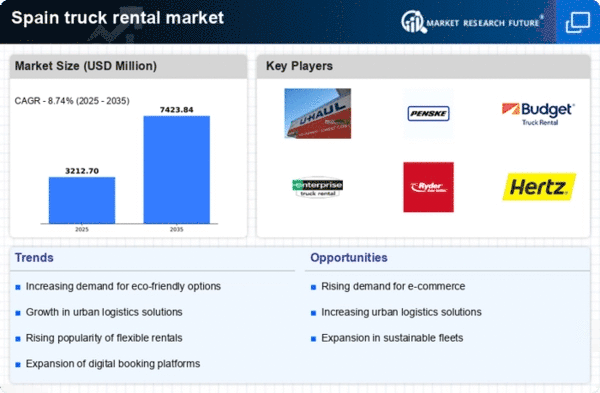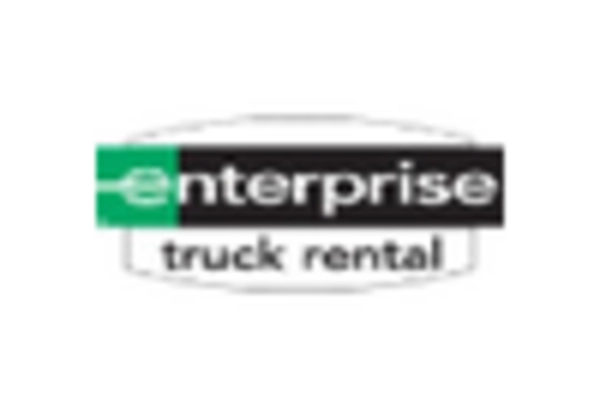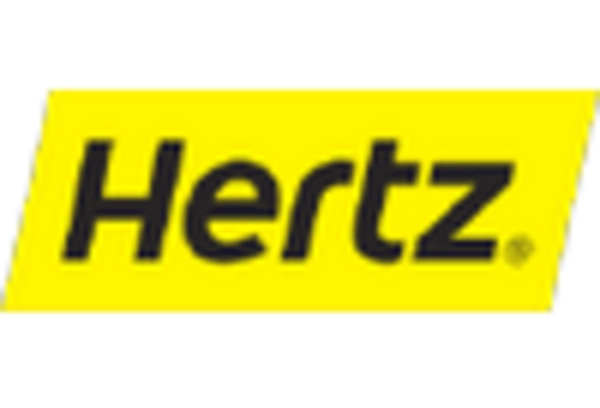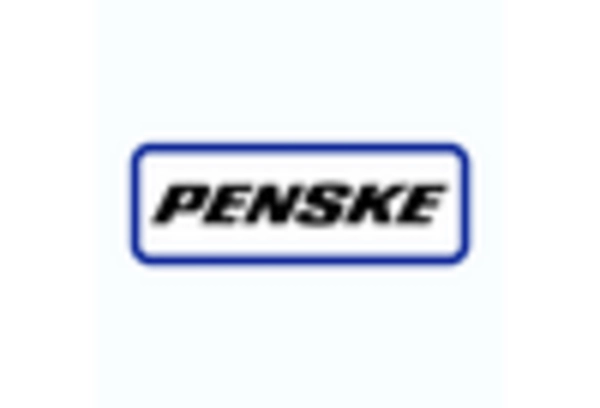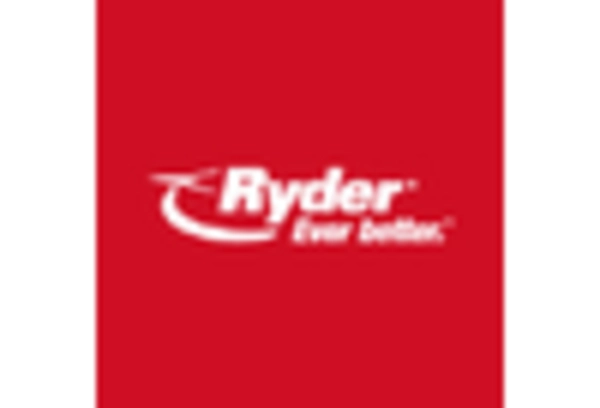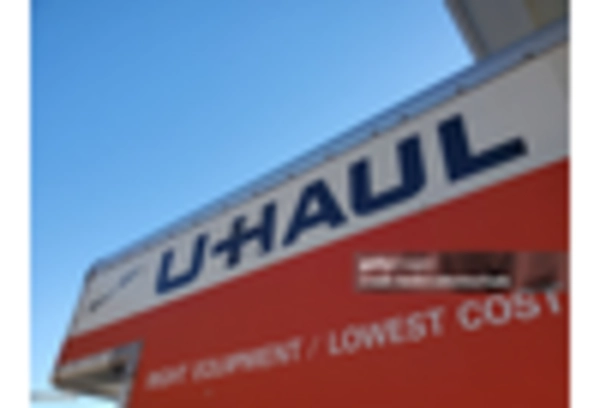Urbanization Trends
Urbanization in Spain is a significant driver of the truck rental market. As more people migrate to urban areas, the demand for transportation services increases, particularly for moving goods and materials. The urban population is projected to reach 85% by 2030, creating a pressing need for efficient logistics solutions. Rental trucks are often preferred for their flexibility and ability to navigate congested city environments. Additionally, urbanization leads to increased construction and renovation projects, further fueling the demand for truck rentals. The truck rental market is likely to benefit from this trend as businesses seek to adapt to the challenges posed by urban logistics.
E-commerce Expansion
The rapid expansion of e-commerce in Spain significantly impacts the truck rental market. As online shopping continues to gain traction, businesses require efficient logistics solutions to meet consumer demands. The e-commerce sector is expected to grow by around 15% annually, leading to an increased need for rental trucks to facilitate last-mile deliveries. Companies are increasingly opting for truck rentals to manage fluctuating demand without the burden of owning a fleet. This trend indicates a shift in logistics strategies, where flexibility and cost-effectiveness are prioritized, thereby bolstering the truck rental market. The ability to quickly scale operations in response to e-commerce growth is crucial for businesses aiming to remain competitive.
Seasonal Demand Fluctuations
Seasonal demand fluctuations play a crucial role in the dynamics of the truck rental market. In Spain, certain periods, such as summer and holiday seasons, witness a surge in demand for rental trucks due to increased moving activities and tourism-related logistics. Businesses often experience peak seasons where the need for transportation services spikes, making truck rentals an attractive option for managing temporary increases in demand. This variability encourages rental companies to offer tailored solutions that cater to seasonal needs, thereby enhancing their market position. The ability to provide flexible rental options during peak times is essential for companies aiming to capitalize on these seasonal trends.
Regulatory Changes and Compliance
Regulatory changes in Spain regarding transportation and logistics are shaping the truck rental market. Stricter emissions regulations and safety standards are prompting businesses to seek rental options that comply with these new requirements. The truck rental market is likely to see an increase in demand for newer, more environmentally friendly vehicles that meet regulatory standards. This shift not only helps companies avoid penalties but also aligns with broader sustainability goals. As regulations evolve, the truck rental market must adapt, offering compliant vehicles that cater to businesses looking to maintain operational efficiency while adhering to legal requirements.
Economic Growth and Infrastructure Development
The truck rental market in Spain appears to be positively influenced by the ongoing economic growth and infrastructure development initiatives. As the Spanish economy continues to recover and expand, there is an increasing demand for logistics and transportation services. The government has invested heavily in infrastructure projects, including road improvements and urban development, which necessitate the use of rental trucks for transporting materials and goods. In 2025, the construction sector is projected to grow by approximately 4.5%, further driving the need for truck rentals. This growth in infrastructure not only supports the truck rental market but also enhances the overall efficiency of supply chains across various industries.


